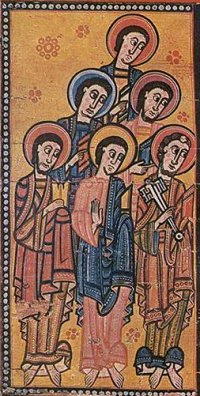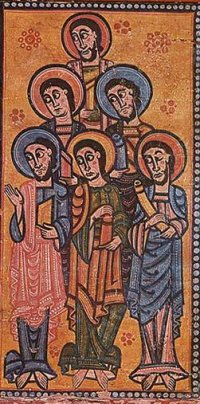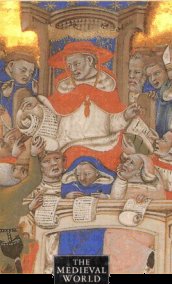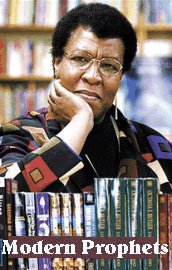
Why Jesus did not choose a woman among the apostles
|
 |
|---|
The Declaration [Inter Insigniores of 1976] concludes that the Church "does not consider herself authorized to admit women to priestly ordination." To its fundamental reasons the document adds other theological reasons which illustrate the appropriateness of the divine provision, and it also shows clearly that Christ's way of acting did not proceed from sociological or cultural motives peculiar to his time. As Paul VI later explained: "The real reason is that, in giving the Church her fundamental constitution, her theological anthropology-- thereafter always followed by the Church's Tradition--Christ established things in this way."
In my Apostolic Letter Mulieris Dignitatem [of 1988], I myself [Pope John Paul II] wrote in this regard: "In calling only men as his Apostles, Christ acted in a completely free and sovereign manner. In doing so, he exercised the same freedom with which, in all his behaviour, he emphasized the dignity and the vocation of women, without conforming to the prevailing customs and to the traditions sanctioned by the legislation of the time."
In fact, the Gospels and the Acts of the Apostles attest that this call was made in accordance with God's eternal plan: Christ chose those whom he willed (cf. Mark3:13-14; John 6:70), and he did so in union with the Father, "through the Holy Spirit" (Luke 1:2), after having spent the night in prayer (cf.Luke6:12). Therefore, in granting admission to the ministerial priesthood, the Church has always acknowledged as a perennial norm her Lord's way of acting in choosing twelve men whom he made the foundation of his Church (cf.Revelation 21:14) . . .
Wherefore, in order that all doubt may be removed regarding a matter of great importance, a matter which pertains to the Church's divine constitution itself, in virtue of my ministry of confirming the brethren (cf.Luke22:32) I declare that the Church has no authority whatsoever to confer priestly ordination on women and that this judgment is to be definitively held by all the Church's faithful. Ordinatio Sacerdotalis, 22 May 1994.
What to say about this?
|
This document is part
of an online course. If you want to study the rules of understanding Sacred
Scripture methodically, join our course Interpreting Scripture Correctly. The course is free and offers distinct advantages. |
|---|
It is good to recall the observations we have already made during our first analysis of the appopintment of the twelve:
 |
1. The particular context of Jesus' own preaching
explains his option to choose 'twelve new patriarchs' instead of the old
patriarchs of the tribes. The context shows it was not a
permanent norm. 3. The absence of women was a purely negative fact.
From other examples we know that Jesus did not establish
permanent norms by not doing something. |
 |
|---|
Conclusion: The appointment of the original twelve cannot be legitimately claimed to establish a permanent norm excluding women from the priestly ministry.
The ministry of women is an issue for the Church in which the full intention of Jesus is only being realised during our own time.
Whole books have been written about this. I recommend my own books: The Ordination of Women in the Catholic Church and The Women Deacons of the Early Church. Here I present a short historical overview, comparing the women's issue with racial equality and human rights.
Stage One. JESUS' SPIRITUAL REVOLUTION
During the three years of his public ministry, Jesus' words and deeds brought about a revolutionary new reality, the extent of which could not be realised during his life time.
| Racial equality | Human freedom | Emancipation of women | |
 |
Though beginning his ministry among his own Jewish nation, Jesus did not reject people belonging to other races. As the suffering servant, he proclaimed his mission was to bring salvation to the whole of humankind. |
Jesus accepted slavery as a social fact in his day. He did not explicitly call for slaves to be freed. However, he always preached support for the poor, for the socially oppressed, for the underdog. See also our case study on slavery. |
Jesus invited women to discipleship as much as men and on the same terms. |
Stage Two. ACKNOWLEDGEMENT OF THE
PRINCIPLE
IN THE APOSTOLIC CHURCH
The apostolic communities tried to live up to the changes brought by Christ. Equality and equal rights were acknowledged in principle. The full social implications remained large unfulfilled.
| Racial equality | Human freedom | Emancipation of women | |
 |
The Council of Jerusalem officially members from all races as equal in the Church (Acts 15,1-29). Paul often proclaimed it as a principle: "God has no favourites" (Romans 2,11; etc.). |
"In Christ, there is no distinction between slave and free person" (Colossians 3,9-11; etc.) However, slavery remained a social reality (Colossians 3,22 - 4,1;etc.) See our case study on household codes. |
Paul declared the fundamental equality of women and men (Galatians 3,27-28). The first women were ordained deacons (Romans 16,1-2). However, women remained in an inferior social status and traces of prejudice are apparent in rationalizations. |
Stage Three. CHRIST'S REAL
INTENTIONS OVERSHADOWED AND OBSCURED
BY DOMINANT CULTURES
The Fathers of the Church frequently misread Scripture in the light of the Greek and Roman cultures. Their thinking was formalised by the theologians of the Middle Ages and - worst of all - enshrined in the emerging codes of church law.
| Racial equality | Human freedom | Emancipation of women | |
 |
The implications of racial equality were often tested in Christian history. After the Reformation which re-introduced some Old Testament ideas, there have been crises in many countries. Colonised nations were looked down upon, especially black races. Apartheid in South Africa was endorsed by some Christian Churches. |
Theologians worked out four just titles for holding slaves: people captured in war, persons condemned to slavery for a crime; persons selling themselves or their children into slavery; children of a mother who was a slave. Church lawyers and popes accepted slavery as an institution willed by God. This was re-affirmed by Pope Pius IX as late as 1866. |
Under influence of Roman Law and local cultures, prejudices against women were laid down in Church law and practice. Women were treated as inferior persons, prone to sin and unclean in liturgical context. Even the ordained diaconate of women that had existed for a thousand years was discontinued. |
Stage Four. TIME OF DISCERNMENT AND REALIZATION
Under pressure of widespread social reform and improved scriptural and theological studies the Church is gradually waking up to reconsider enshrined practices. The true implications of many Gospel principles are being rediscovered.
| Racial equality | Human freedom | Emancipation of women | |
 |
Starting from Pope Leo XIII (1878-1903), church leadership became more aware of the need to support social reform including the combating of every form of racism. The Second Vatican Council endorsed this fully in its ground breaking decree Gaudium et Spes (1965). |
The secular liberation movements found strong support among Catholic theologians and bishops. After prophetic protests by many in the Church, the Second Council denounced all forms of slavery as 'contrary to the mind of Christ'. |
The surge of secular feminist thought and action has begun to be echoed in the Church. In spite of efforts by Vatican leadership to suppress the women issue, a vast majority of thinking Catholics now support complete recognition of women also in the sacred ministries. |
Conclusion:
It
is understandable why the election of the twelve was looked upon as excluding
women in the cultural climate of past days. The time has come for the Church to
re-examine the scriptural evidence and formally accept
that Jesus' electing only men as apostles did not constitute a permanent
norm.
© John Wijngaards

The texts in our course Interpreting Scripture Correctly were written by John Wijngaards in 2009. Part of the contents is based on his earlier publications, in particular:
Illustrations in the video clip by Jackie Clackson.